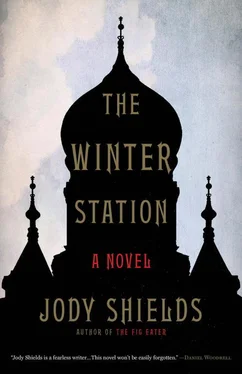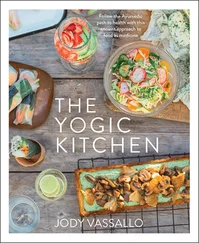The medical staff quietly tracked the declining number of deaths tallied on the clipboards. But they anticipated something worse would happen, an ambush, double or triple the number of patients. Or the plague would transform itself, develop terrible new ways to infect and kill. The devil came in many guises.
“After an earthquake, everyone stands on the street waiting for the next stage of destruction,” Wu reminded Zabolotny. “The epidemic has the shape of a curve. The end is still invisible.”
Five beds in the plague ward remained empty for twenty-four hours. Then ten beds were empty for three days. This new pattern held over the next week. The medical staff cautiously identified a turning point in the epidemic. It was unsettling. It was considered bad luck to talk about the situation. Do not tempt the gods. The hospital workers were still in the grip of a siege, unable to dismiss their fears, grasp a rescuer’s hand, escape through a door accidentally left unlocked. There was no celebration or self-congratulation. The doctors and nurses were only survivors.
It seemed the grip of winter had slightly loosened. According to the Chinese, the fresh east wind would mark the beginning of spring and have a positive effect on everyone’s health. The Russians prepared for the fast for Great Lent, which began in February and continued for forty days, until Easter. All meat and animal products, including lard, eggs, milk, butter, and cheese, were forbidden by the Russian Orthodox Church. The very devout also refused sugar and fish during the first and last weeks of the fast.
Holiday traditions were observed. Eggs were hard-boiled, dyed red with beet juice, and painted with geometric designs and inscriptions: Take, eat, and think of Me. This present I give to Christ I love . XB, which symbolized Christos voskres, “Christ is risen.” Red eggs filled bowls placed in the conference room, the nurses’ station, the doctors’ mess, even on a shelf in the guards’ box downstairs. The entire staff, Russian and Chinese, appreciated the shared offering, as red eggs were also a Chinese tradition, a gift at the birth of a baby.
“Red for good fortune,” a Chinese nurse had quipped.
“Good fortune? The color gives me no joy,” said her Russian co-worker, an intern from Tomsk. Red was the sign of plague, the bleeding that drained away life.
The devout claimed the blessing of the red eggs broke the plague. Others were convinced that it was prayer and the intercession of Saint Nikolas the Wonder-Worker, Kharbin’s patron saint, that had delivered them from death.
Messonier remained in mourning. He occasionally worked at the hospital, was silent with colleagues, left after a few hours without signing out on the schedule. The Baron had no idea where he spent his time. Messonier was beyond criticism.
The Baron respected this gulf between them. But there was a gift he held for Messonier. He would make a plea to the other doctors that Maria Lebedev be allowed to rest in peace. Messonier was unaware of his plan. He resolved to practice self-effacement when presenting his case to the others, speak to them without overconfidence or scolding. Illness had stripped away a layer of the Baron’s self-regard. He recognized this presence of mind had been initiated by his teacher.
A guard forbade the Baron entry into the Russian hospital. A smile, a recital of important names, and a generous bribe were provided. Upstairs, the conference room was crowded and noisy as the staff gathered in small groups, waiting for latecomers to the morning meeting. Few noticed the Baron had joined them and only Dr. Iasienski courteously greeted him. Dr. Wu called the meeting to order.
“Please forgive my interruption.” The Baron stood up to speak, his manner apologetic. “I have an urgent matter that needs your attention.” He walked to the head of the table next to Dr. Wu and Dr. Zabolotny. Wu graciously moved aside for him. “Last week, I entered the plague burial pit in the field north of Kharbin. Unprotected by gloves or a mask, I handled two corpses.” He slipped the photograph of himself cradling the dead infant from a leather case and held it so that everyone at the table could see it.
No one spoke. He handed the photograph to Zabolotny, who immediately put it facedown on the table. Wu picked it up and turned it over.
“I’m no danger to anyone here in the room. I was isolated in quarantine for three days afterward. I have no symptoms. None. As I stand before you now, I’m perfectly healthy.” The Baron showed them the image of the dead girl. “Without protection, I also handled the body of a young girl dead of plague in the burial pit.” This photograph was also placed on the table in front of Wu.
“Baron le docteur , this is a surprise.” Zabolotny’s eyes swept the table to gauge the doctors’ reactions. Who will rid us of this man? “A surprise and an outrage to bring these grotesque images here.” He flicked a photograph with a finger and it skidded across the table. “Leave the room as a gentleman before you are forced to leave.”
Protests erupted around the table.
“Let the Baron speak.” Wu gestured for quiet. “Continue.”
Zabolotny didn’t hide his displeasure at Wu’s request and the Baron was reminded of how the man enjoyed centering attention on himself. The aggrieved party. “Thank you, Dr. Wu. I admit my experiment was unorthodox, but it proved that those who died of plague are no threat to the living. Corpses aren’t contagious.”
“He’s mad,” said Dr. Haffkine.
“No, he’s trying to be a hero.”
The Baron agreed. “Yes. It was foolish to risk my life for a medical theory.”
“Let’s consider your foolishness. You’ve published articles anonymously—surely written by you—in the St. Petersburg newspaper criticizing our work. Our sacrifices.” Zabolotny looked to Wu for confirmation.
“That’s not the issue under discussion.” Wu’s stern voice. “What do you propose, Baron?”
“Leave the plague dead undisturbed in the cemeteries. There’s little chance infection will spread from the bodies, since the ground stays frozen until May. There’s time to test my theory. Be thorough and logical. It’s less work and disruption than digging up the cemeteries. Let’s not act without consideration.”
“There’s no time for the luxury of guesswork,” said Dr. Boguchi. “I say remove the infected dead before there’s a new epidemic. It’s dangerous not to eliminate the problem. The dead are a time bomb buried under our feet.”
The translator had a stricken look but Wu had remained calm in the storm of scornful dismissal. “Baron, as you explained, the corpses are frozen. But once they thaw, it’s possible bacilli infesting their bodies could still be alive. Perhaps the bacilli are only in a suspended state, hibernating inside the corpse. We don’t know. The plague could reemerge and strike Kharbin again.”
The Baron tried to retain a neutral expression despite the escalating hostility. “There’s another issue. You need the blessing of the Russian Orthodox Church to exhume the cemeteries. It’s sacrilege.”
“Who could argue against the dead?” Zabolotny acted as if he’d been unjustly accused. “Respect the dead but not at the cost of the living. The priests will be reasonable.”
“You would watch your families and friends taken from their graves? Betray them without protest? Maria Lebedev is buried in St. Nikolas cemetery. Surely you’d spare Dr. Messonier, her fiancé, this anguish?” The Baron’s words pulled a momentary silence from the room.
The mood shifted against Zabolotny, as there was little enthusiasm for digging up dead Russians. The cemeteries of other faiths wouldn’t be defended.
Читать дальше











